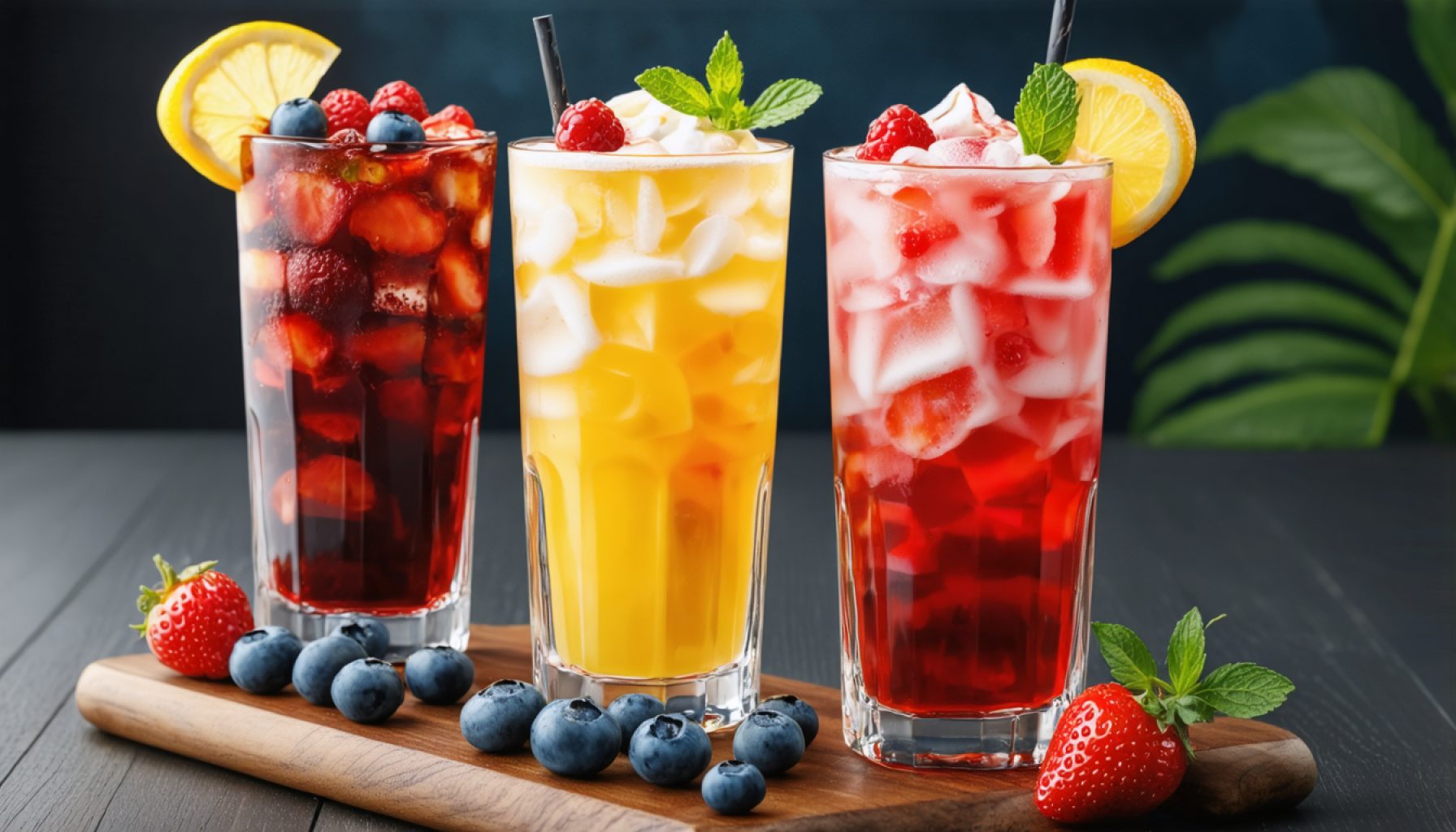- Health and wellness are increasingly influencing American beverage purchasing decisions, driving demand for better-for-you drinks.
- Beverage giants are utilizing natural sweeteners like allulose and monk fruit to offer flavorful options with reduced sugar content.
- The alcohol industry is witnessing a shift as younger generations favor sobriety, boosting the no- and low-alcohol product market to over $565 million in sales.
- Potential tariffs on aluminum present a packaging challenge, possibly pushing the industry towards innovative ecological solutions.
- Constellation Brands, Inc. successfully navigates these changes, with its beer division performing strongly despite market shifts.
- Overall, the industry’s key to success lies in adapting to evolving consumer preferences and embracing transformation.
Amid the swirling currents of innovation and tradition in the American beverage industry, an intriguing narrative unfolds. At the heart of this transformation lies a powerful shift in consumer priorities: health and wellness increasingly drive purchasing decisions. This fundamental change is reshaping the landscape of what we drink and why we drink it.
The industry titans are not idle, recognizing that to quench the modern thirst, they must do more than offer basic hydration. Now, the beverage giants are crafting better-for-you drinks that promise energy boosts, gut health benefits, and more, leveraging natural sweeteners like allulose and monk fruit to meet the demand for flavor without the guilt of added sugars. This shift is set against the backdrop of dietary changes fueled by weight-loss trends and a rising preference for transparency in ingredients.
Meanwhile, the alcohol sector undergoes its metamorphosis. As younger generations increasingly opt for sobriety, brands are tapping into the growing no- and low-alcohol market. Sales of non-alcoholic options exploded past $565 million—a testament to a new cultural shift where moderation marries innovation.
Yet, looming tariffs on aluminum threaten a packaging conundrum, with costs adding an unexpected twist to this evolving tale. Here lies a paradox: could these tariffs spur a revolution in ecological packaging, or should the industry brace for a packaging nightmare?
In the midst of these oscillating tides, Constellation Brands, Inc. stands strong. While traditional segments wobble, its beer division sails smoothly, maintaining its dividend allure. Its resilience amidst change is indeed a beacon to other beverage warriors navigating this brave new world.
As our gaze lingers on the horizon, the lesson is clear: adapt or lose fizz. It’s an invitation to embrace not just change, but transformation—sharp, sweet, and endlessly refreshing.
Are Health-Conscious Beverages and No-Alcohol Options the Future of the Drink Industry?
How-To Steps & Life Hacks for Choosing Healthier Beverages
1. Read Labels Carefully: Look for drinks with natural sweeteners like allulose or monk fruit instead of added sugars.
2. Check for Functional Benefits: Seek out beverages that offer additional health benefits, such as probiotics for gut health or added vitamins.
3. Mind the Caloric Intake: Opt for low-calorie options that fit your dietary goals, especially if weight management is a priority.
4. Prefer Transparency: Choose brands that list all ingredients and disclose any potential allergens.
Real-World Use Cases
– Energy Boosts: Consumers can choose drinks infused with natural caffeine sources like green tea or yerba mate for a healthier burst of energy.
– Gut Health: Kombucha and kefir are popular for their probiotic content, which supports digestive health.
– Social Moderation: No- and low-alcohol beverages allow consumers to enjoy social gatherings without the effects of alcohol, supporting the growing trend of mindful drinking.
Market Forecasts & Industry Trends
The non-alcoholic drinks market is expected to grow significantly, with projections suggesting an annual growth rate of over 7% from 2021 to 2027. Meanwhile, the low-alcohol segment is predicted to see continued innovation as brands strive to replicate the sensory experience of traditional alcoholic drinks without the high ABV (Alcohol by Volume).
Reviews & Comparisons
– Non-Alcoholic Beer: Brands like Heineken 0.0 and Athletic Brewing Co. receive positive reviews for their ability to mimic the taste of traditional beers.
– Health Drinks: Superfood-infused waters and plant-based milks are compared based on nutritional content and sugar levels.
Controversies & Limitations
– Sweetener Debate: While natural sweeteners are gaining popularity, some health professionals argue that they may have unknown long-term effects.
– Packaging Concerns: The looming aluminum tariffs could either drive innovation in sustainable packaging or significantly increase costs.
Features, Specs & Pricing
– Price Range: Health-oriented drinks tend to be priced higher due to premium ingredients, often ranging from $3 to $10 depending on the product and brand.
– Nutritional Specs: Zero to low sugar content is a common feature, with added benefits like electrolytes or antioxidants.
Security & Sustainability
– Ecological Packaging: The industry is exploring alternatives such as paper bottles and biodegradable packaging, although cost and scalability remain challenges.
– Supply Chain Transparency: Consumers are demanding transparency not only in ingredients but in sourcing and production practices.
Insights & Predictions
Experts predict that as consumer awareness continues to rise, brands will focus more on personalized health benefits, leveraging AI and data analytics to cater to individual nutritional needs.
Pros & Cons Overview
Pros:
– Promotes healthier lifestyle choices
– Caters to growing preferences for non-alcoholic options
– Encourages brand innovation
Cons:
– Higher price points can be a barrier for some consumers
– Packaging challenges may lead to higher costs or environmental concerns
Conclusion and Quick Tips
– Stay Informed: Keep abreast of new products and ingredients to find the best fit for your health needs.
– Experiment: Try different low- and no-alcohol options to find one that satisfies your taste preferences.
– Support Sustainable Brands: Choose companies that prioritize ecological packaging and transparent sourcing practices.
For continuous updates on the beverage industry, visit Beverage Daily for in-depth articles and reports.








